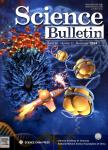A simple fabricated thickness-based stiffness gradient for cell studies
A simple fabricated thickness-based stiffness gradient for cell studies作者机构:Division of Life Science & Health Graduate School at Shenzhen Tsinghua University Shenzhen 518055 China Department of Chemistry The Hong Kong University of Science and Technology Hong Kong China Department of Physics The Hong Kong University of Science and Technology Hong Kong China
出 版 物:《Science Bulletin》 (科学通报(英文版))
年 卷 期:2017年第62卷第3期
页 面:222-228页
核心收录:
学科分类:1002[医学-临床医学] 100214[医学-肿瘤学] 10[医学]
基 金:supported by the Hong Kong Research Grant Council (GRF#16306115 and #16325116) HKUST SSTSP (#FP701) the National High Technology Research and Development Program of China (2013AA032204)
主 题:Stiffness gradient Cell analysis PDMS Etoposide
摘 要:In this work, we developed a simple method to fabricate a thickness-based continuous stiffness gradient for biological studies. It was made by glass slides, polydimethylsiloxane (PDMS) pre-polymer, spacer and clips only, without any sophisticated equipment. It is easy to fabricate in any general biological and pharmaceutical laboratories. The stiffness gradient was characterized in terms of apparent Young's modulus by atomic force microscopy (AFM) and the Young's modulus along the gradient was found to be 8.5- 120 kPa, which is within the physiological relevant range. HeLa-C3 ceils were cultured on the gradient to study their morphological behavior according to the substrate stiffness. Furthermore, the drug efficiency of etoposide, an anti-cancer drug, was studied along the substrate stiffness gradient. It was found that HeLa-C3 cells cultured on the soft region of the gradient (8.5-11 kPa) are more sensitive to etoposide. We believe the proposed device could promote cell investigations and drug screenings on a substrate with comparable stiffness to the native tissue.



